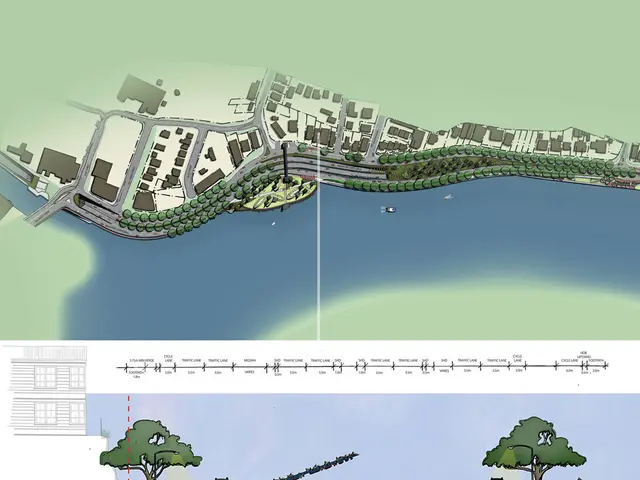Living in a City Devoid of Distinct Seasons: A Perceptual Perspective
In the heart of the Arabian desert, Dubai's consistent sunshine and high temperatures shape more than just its vibrant landscape. The city's unique climate plays a significant role in shaping the emotional well-being and daily life of its residents.
Living in a city with a consistently sunny and hot climate like Dubai can have profound effects. Extreme heat, often exceeding 50°C during peak times, contributes directly to irritability, fatigue, anxiety, mood swings, and difficulty concentrating. The brain works harder to regulate body temperature, diverting blood flow to the skin and reducing oxygen and nutrients to the brain, which results in slower thinking and mood instability.
Heat also exacerbates stress and mental load, particularly for parents or caregivers, who may face disrupted routines and increased demands without downtime. This intensifies emotional burnout. Dehydration linked to intense heat worsens mental clarity and mood, while sleep disruption due to heat reduces emotional resilience and performance.
Outdoor activities are limited during peak heat hours, affecting exercise habits, leisure, and social interactions. Residents must adapt by staying indoors during extreme heat, hydrating frequently, wearing breathable fabrics, and consuming hydrating foods. The heat also imposes practical constraints on work schedules, especially for outdoor workers, and increases health risks like heat exhaustion and dehydration.
However, the warm, sunny weather in Dubai offers some benefits. Year-round sunshine supports outdoor luxury living, vibrant public spaces, and a sense of community. Some residents appreciate the consistency of the climate, avoiding the emotional effects of seasonal variation like winter blues common in colder climates.
The predictability of Dubai's weather simplifies daily planning and wardrobe choices. Cultural festivals, school terms, Ramadan, and the winter event calendar bring natural rhythm to the year in Dubai. The cultural fabric of Dubai plays a crucial role in how residents adapt to the climate, fostering a community that is resilient and resourceful.
Ramadan plays a significant role in shaping time across the year in Dubai. The city's climate offers a unique sense of stability that many cities around the world can't provide. Exposure to natural light in Dubai can enhance serotonin production, a neurotransmitter linked to feelings of well-being and happiness. The abundance of sunlight in Dubai is associated with improved mood and energy levels.
However, the intense summer heat in Dubai can lead to physical discomfort and necessitate spending extended periods indoors, potentially contributing to feelings of isolation or cabin fever for some individuals. Dubai does not follow the seasonal clock that many grew up with, but it offers space to create your own seasons, marked not by weather but by experience.
In summary, while the abundant sunshine and warm climate in Dubai offer lifestyle benefits, the extreme heat and consistent high temperatures pose significant challenges to emotional well-being and daily functioning by increasing stress, fatigue, and cognitive difficulties. Residents and visitors in Dubai must be mindful of these effects and take steps to mitigate them to maintain physical and mental health.
Read also:
- Arctic Life Cultivation Through Forest Sheltered Tundra Permaculture
- Prostate Cancer Progression: Prognosis, Therapies, and Resources of Care (Stage 2)
- Impacted vision post-cataract surgery: Reasons and remedies
- Tragic tale revealed by a mourning Indian father: Daughter and son-in-law, both alive and cherishing their family life, meet an untimely end in a mishap in Abu Dhabi, leaving their young children behind.








